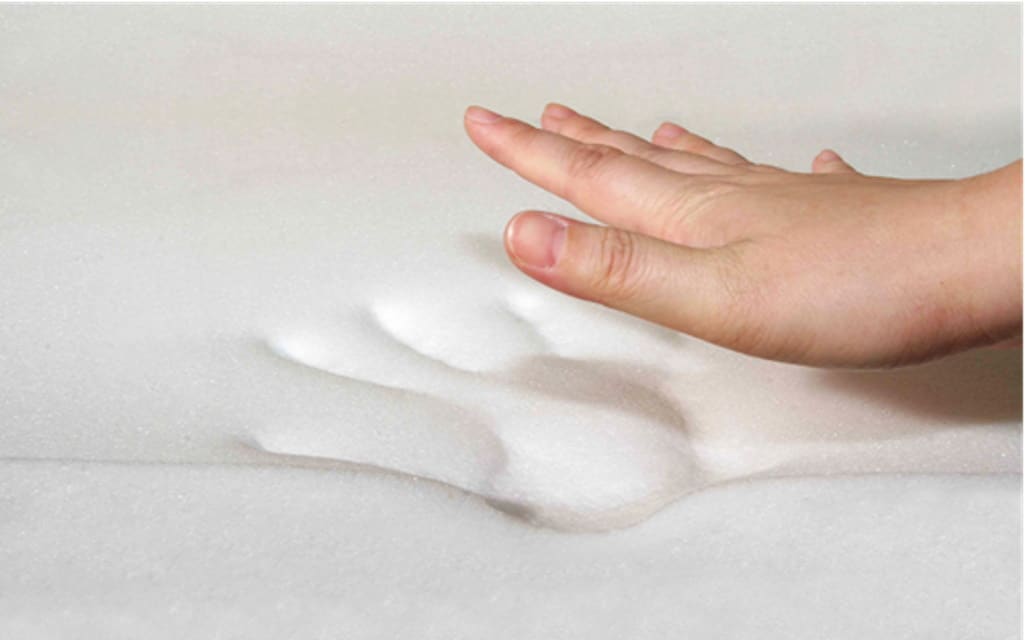Healthy adults should be getting 7 to 9 hours of sleep every evening. While many of us fall below that threshold, chances are you’re still spending a significant portion of your life lying in bed.
Because of that, it stands to reason that your bed should be comfortable and that you should know if a firm or soft mattress is best suited to support your sleep.
Ask ten people and you’ll get a plethora of answers when it comes to the merits of firm versus soft. To help bring some clarity to this highly contested conversation, our team has compiled some comparative points that can help guide you towards the perfect sleep system for your unique needs.
1. Consider Your Spine
Spinal health is one of the top considerations people look at when determining whether you’re going to buy a firm or soft mattress. As a rule of thumb, if you have spinal issues such as pain or misalignment, a firm mattress is going to be a better buy.
Soft mattresses will make it so your spine sinks into your mattress and can shift dramatically if you toss in your sleep. This may exacerbate your issues and lead you to wake up sore.
2. Think About Your Sleep Position
Sleep position is another key driver of the soft versus firm conversation. For example, back sleepers will likely enjoy the support that firm mattresses provide their spines. Side sleepers (particularly those that sleep in the fetal position) would likely prefer soft mattresses as those surfaces will be much less harsh on the more sensitive rib area of the body.
In general, stomach sleepers will have an easier time on a soft mattress because again, frontal sleeping puts additional pressure on sensitive areas of your ribs, which might benefit from the additional cushion.
3. The Question Around Circulation
Better posture promotes better circulation. That may not mean much to healthy adults but for adults with low blood pressure or heavy adults that can use all the support they can get when it comes to their blood moving efficiently, posture matters.
As you may have guessed, firm mattresses are much better at preserving your body’s posture which means that they are the bed of choice for those that could use assistance with circulation.
4. Analyzing Bodyweight
People that are slender to medium-sized are going to do much better with soft mattresses than heavy individuals. Soft mattresses have less support, which means that they are more prone to indentation. Because of that, heavier people will get much less use out of their soft mattresses before they become too hollowed to enjoy.
The best way to avoid indentation as a heavier person on a soft mattress is to rotate it monthly. If that sounds like more work than it’s worth, buy one of the better firm mattresses for heavier individuals, which you can learn more about.
5. Painful Joints
Sleepers with painful knees, elbows, fingers and other joints should put soft mattresses at the top of their list.
Severe joint pain can be exacerbated by any hard surface, including ultra-firm mattresses. Rather than wincing whenever you shift positions in bed, opt for a soft mattress that will reduce surface impact.
If you develop painful joints after having purchased a firm mattress and are looking for additional cushion, we’ve heard that “pillow toppers” for mattresses can also provide some relief.
6. Sleeping With Partners
We’ve all seen the scene depicted in media… A couple lays in bed and one person tosses and turns, sending shock waves through their mattress and waking their partner up.
If your partner is a restless sleeper and you’re a light one, you’ll want to opt for a soft mattress. Soft mattresses do a much better job of absorbing motion, which will insulate you from some of your partner’s late-night antics.
7. Breathing Support
Breathing while sleeping is largely affected by how well your posture is supported while lying down. Given that firm mattresses are much better at preserving your sleeping position than soft mattresses, firm beds should be your first stop if catching your breath at night is an issue.
Some common breathing issues that might benefit from a firm mattress include snoring, sleep apnea and problems related to anxiety.
8. Use of Props
If you’re one of those people that uses tons of pillows to support your sleep, firm mattresses will better complement their use. This may not hold true for everybody, but for most, using soft pillows on soft mattresses creates an experience that feels more smothering than comfortable.
Firm beds enable your sleeping props to lay on a solid foundation, which lets you enjoy their benefits without feeling like they’re being amplified by your sleep surface.
Read More: What are the benefits of a mattress topper?
9. Trial and Error
The considerations we’ve shared should give you a good idea as to whether a firm or soft mattress is right for you. Even with our guidance, you may find that the mattress that makes sense on paper does not support your comfort. That’s why the best thing you can do when it comes to mattress shopping is to head to your local mattress store and lay on some inventory.
Only through trial and error can you know for sure what’s going to work best for you.
Making the Right Firm or Soft Mattress Choice Will Revolutionize Your Sleep
Too many people focus on price when mattress shopping and not what it’s providing. That’s a huge mistake as the quality of your mattress will dictate the quality of your sleep and the quality of your sleep will affect other areas of your life.
Our team trusts that our firm or soft mattress guidance helps you pick better beds in the future and welcomes you to read more of the insightful content we have available in our blog.



